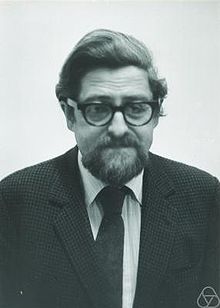À propos des conférences Nirenberg
About Nirenberg lectures
À propos des conférences
La série de conférences Nirenberg a été nommée ainsi en l’honneur de Louis Nirenberg, un des plus éminents spécialistes en analyse géométrique de notre temps. Louis Nirenberg est né en 1925 à Hamilton (Ontario). Après le déménagement de sa famille à Montréal, il a étudié à l’école secondaire Baron Byng et obtiendra son B.Sc. de l’Université McGill en 1945. En 1949, Louis Nirenberg reçoit son doctorat de New York University où il deviendra plus tard professeur au Courant Institute. Ses contributions fondamentales incluent des travaux précurseurs sur les techniques des EDP nonlinéaires en géométrie globale différentielle, les inégalités Gagliardo-Nirenberg en théorie des espaces Sobolev, la théorie Agmon-Douglis-Nirenberg sur les problèmes aux limites elliptiques, l’espace des fonctions d'oscillation moyenne bornée (BMO) de John-Nirenberg, la théorie Kohn-Nirenberg des opérateurs pseudo-différentiels et le théorème Newlander-Nirenberg en géométrie complexe. Les réalisations en recherche de Louis Nirenberg ont été reconnues par de nombreux prix et honneurs tels que la National Medal of Science, la Chern Medal, le Crafoord Prize, le Steele Prize, le Jeffery-Williams Prize et le Prix Abel.
About the lectures
The lecture series is named in honour of Louis Nirenberg, one of the most prominent geometric analysts of our time. Louis Nirenberg was born in 1925 in Hamilton, Ontario. After his family moved to Montréal, he attended Baron Byng High School, followed by McGill University, earning his B.Sc. there in 1945. In 1949 Louis Nirenberg received a Ph.D. from New York University, where he later became a professor at the Courant Institute. His fundamental contributions include the pioneering work on nonlinear PDE techniques in global differential geometry, the Gagliardo-Nirenberg inequalities in the theory of Sobolev spaces, the Agmon-Douglis-Nirenberg theory of elliptic boundary value problems, the John-Nirenberg space of functions of bounded mean oscillation (BMO), the Kohn–Nirenberg theory of pseudo-differential operators, and the Newlander-Nirenberg theorem in complex geometry. The research achievements of Louis Nirenberg were previously recognized by numerous prizes and awards, such as the National Medal of Science, the Chern Medal, the Crafoord Prize, the Steele Prize, the Jeffery-Williams Prize and the Abel Prize.

